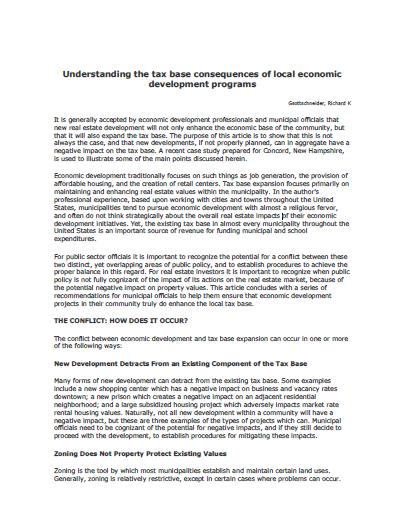It is generally accepted by economic development professionals and municipal officials that new real estate development will not only enhance the economic base of the community, but that it will also expand the tax base.
A case study prepared for Concord, New Hampshire, is used to illustrate that this is not always the case, and that new developments, if not properly planned, can in aggregate have a negative impact on the tax base. The city was divided into 10 sub-districts which were then evaluated for performance trends using the tax assessors data base.
The findings from this analysis include: 1. New retail development had been a mixed blessing. 2. Commercial encroachment into residential neighborhoods had created use and value conflicts. 3. Office development was not properly segregated from light industrial/warehouse uses.
Recommendations to municipalities seeking to pursue economic development and maximize the tax base include: 1. Monitor land uses and tax base contributions. 2. Monitor real estate markets. 3. Do not compete with the private sector. 4. Establish design standards.





